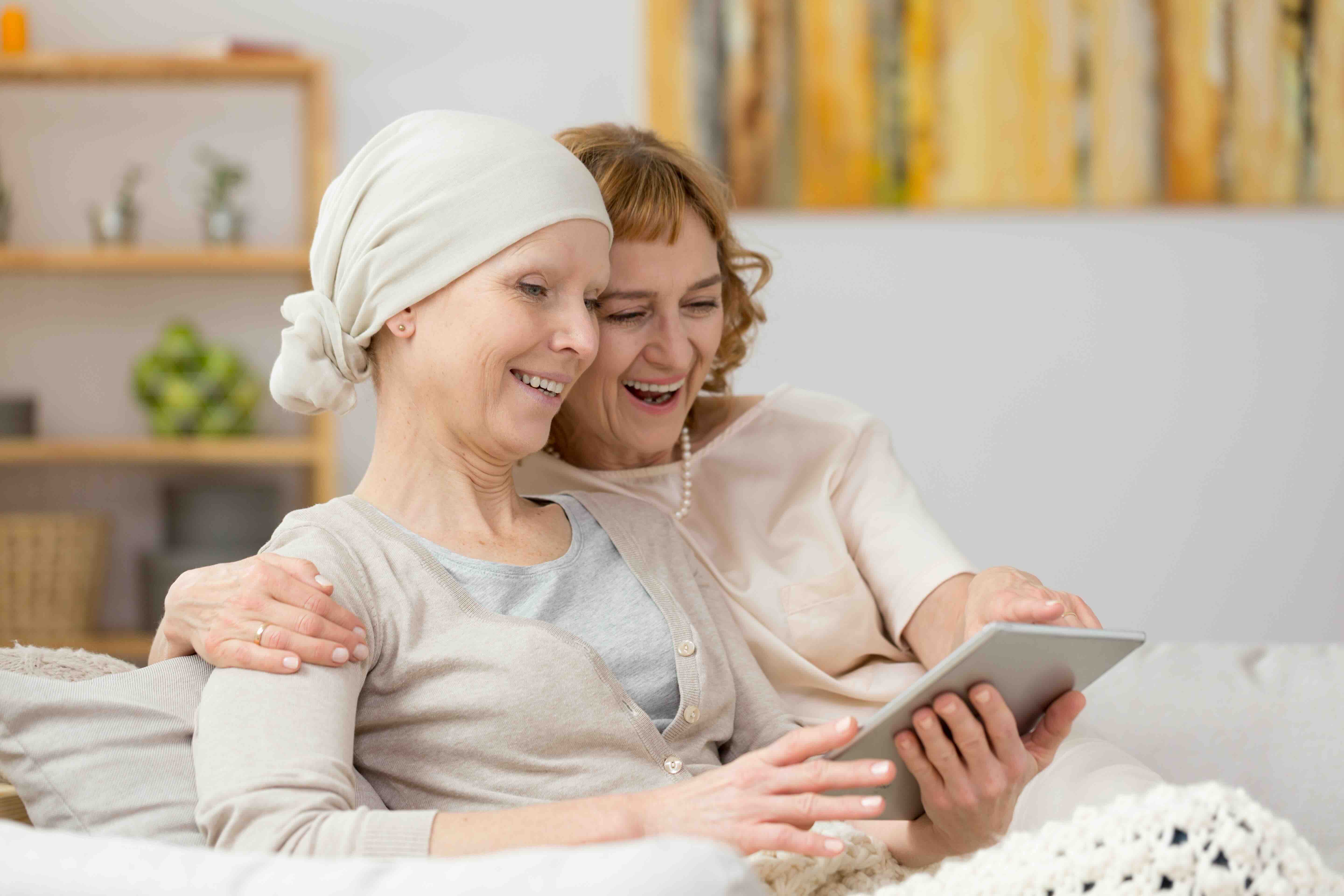Caregiver for Breast Cancer: How to Support, Cope, and Find the Right Resources

When someone you love is diagnosed with breast cancer, your life changes too. Becoming a caregiver for breast cancer means stepping into a role that demands compassion, organization, and strength, often while juggling your own emotions and responsibilities.
From managing medical appointments to offering emotional support, caregivers play a vital role in the cancer journey, yet it’s a role that can be overwhelming without the proper knowledge and resources.
This guide will help you navigate what to expect, share practical caregiving tips, explore emotional support strategies, and point you toward financial help for families managing cancer care.
Understanding the Role of a Caregiver for Breast Cancer
A caregiver for breast cancer patients wears many hats: advocate, assistant, emotional anchor, and sometimes even medical translator. At the time of diagnosis, you may find yourself learning about treatments, helping make decisions, and keeping track of appointments. During active treatment, your days may revolve around medication schedules, transportation to chemotherapy sessions, and creating a comforting home environment.
Recovery introduces its own challenges; patients may struggle with fatigue, body image changes, and anxiety about recurrence. Each stage requires a different kind of support, but your steady presence helps anchor the process.
Caregiving isn’t without its strain. It’s common to feel stretched thin, especially when balancing work, family, and the emotional demands of cancer care. However, studies show that caregivers have a direct impact on recovery and quality of life. A calm, consistent, and informed caregiver can make a measurable difference in how well patients cope with treatment.
Cancer Caregiving Tips for Daily Life
Every day brings new tasks and emotions. These cancer caregiving tips can help you stay organized and grounded as you support your loved one. Below are practical, real-life strategies for caregiving at home, designed to make the journey more manageable for both of you.
Create a Clear Schedule
Consistency can bring peace of mind in an unpredictable time. Keep a shared calendar for medications, follow-up visits, lab tests, and self-care reminders. Use color coding or apps to assign responsibilities to family members. For example, one person might handle transportation while another helps with meals. This not only lightens your load but also gives others a tangible way to contribute.
A clear schedule helps prevent confusion about appointments or medication times, allowing everyone involved to anticipate what’s next. Patients, too, often feel calmer knowing that their care is organized and predictable. Apps like Caily can help you coordinate with people in your care circle, ensuring that no tasks or appointments are overlooked.
Encourage Open Dialogue
Communication is one of the most potent tools in caregiving. Encourage your loved one to share how they’re feeling, physically and emotionally, and to ask questions about their care. Take notes during medical visits, and don’t hesitate to speak up if something is unclear. Your loved one can check in daily with Caily, providing insights to their daily health with one easy tap.
Be gentle but honest in conversations. Avoid minimizing fears or rushing to reassure. Sometimes, the most helpful response is to listen and validate what your loved one is feeling. Open dialogue with healthcare providers is just as crucial; it ensures that treatment plans are followed and adjustments are made promptly when needed.
Support Healthy Nutrition and Hydration
Nutrition plays a key role during treatment. Offer small, nutrient-dense meals that are easy to digest and tailored to changing taste preferences. Encourage fluids, such as water, broths, or electrolyte drinks, to combat dehydration caused by certain medications or chemotherapy side effects.
Consider consulting a dietitian specializing in oncology to develop a plan that supports immune function and recovery. Make mealtime relaxed and pressure-free; even small bites count on difficult days.
Foster Emotional Stability and Routine
Cancer brings uncertainty, and routines help provide emotional stability. Maintain a daily rhythm that includes moments of rest, reflection, and light activity. Gentle exercises, such as short walks or stretching, can help lift moods and ease tension.
Incorporate activities your loved one enjoys, such as music, journaling, or brief outdoor time. Emotional stability also comes from predictability, so stick to consistent routines while allowing flexibility for how each day unfolds.
Manage Your Own Stress and Prevent Burnout
As a caregiver, your health is equally important. Burnout can appear as exhaustion, irritability, or a sense of detachment. Protect your well-being by setting realistic expectations, taking breaks, and accepting help when offered.
Build in small self-care habits: savor a cup of tea in silence, read a few pages before bed, or connect with friends who understand your experience. Many caregivers find it helpful to join online or local support groups where they can share experiences and gain perspective. Remember, you’re part of the care equation, too.
Keep Track of Medical Information
Create a binder or digital file to store test results, medication lists, insurance papers, and contact information for doctors. This helps you stay prepared for emergencies or appointments. Having key details in one place also makes it easier to spot changes or side effects early.
If possible, designate a single point of contact for healthcare communication to avoid confusion among multiple family members.
Encourage Independence Where Possible
Even when your loved one is fatigued or vulnerable, finding ways for them to maintain independence can preserve dignity and self-confidence. Small choices, like what to wear or which meal to eat, help restore a sense of control.
Offer assistance without taking over completely. Instead of saying, “I’ll do that for you,” try, “How can I make this easier for you?” Empowerment is a powerful form of care.
How to Support Someone During Chemo
Understanding how to support someone during chemo can make the experience less intimidating for both of you. Chemotherapy often comes with fatigue, nausea, hair loss, and emotional swings. Being prepared for these realities helps you respond with empathy instead of worry.
Small acts go a long way: drive your loved one to treatments, accompany them during prolonged infusions, or help them rest afterward. Create a calm environment at home: soft blankets, favorite shows, and easy-to-eat meals can bring comfort.
Prepare a chemotherapy care bag before treatments with essentials such as water, snacks, a blanket, hand sanitizer, lip balm, and a good book or playlist. Having small comforts nearby can make long hours in treatment more bearable.
Keep track of side effects in a notebook or care app like Caily, noting when fatigue, nausea, or mood shifts occur. This helps the medical team make adjustments to improve comfort or minimize complications. Encourage your loved one to communicate openly about symptoms instead of trying to “tough it out.”
Be mindful that emotional changes can accompany physical side effects. Anxiety and irritability are normal. Respond with patience and reassurance rather than frustration. Your calm presence often does more to relieve distress than any advice you could give.
Lastly, plan recovery days after each session. Avoid over-scheduling and create a peaceful space where your loved one can rest uninterrupted. Respect their boundaries and adapt to their energy levels; some days they’ll want conversation, while others will require quiet company.
Emotional Support for Caregivers
Providing care for someone you love can take a deep emotional toll. Guilt, fear, and helplessness are common feelings, especially when you can’t fix what’s happening. Acknowledging these emotions makes you human, and is the first step to preventing burnout.
Compassion fatigue is real. It happens when continuous giving leaves little room for your own recovery. Build in time for rest, hobbies, and social connection. Even a few minutes of mindfulness or fresh air can help reset your mental state.
Support groups and counseling, whether in person or online, offer a lifeline. Talking with others who understand caregiving challenges normalizes your experience and reminds you that you’re not alone. Celebrate small victories, too. Every good day, every shared laugh, and every step forward matters.
Financial Resources for Families Caring for Someone with Cancer
The cost of cancer treatment can create immense financial strain for families. As a caregiver for breast cancer, it’s essential to know where to find help and how to stay organized.
Several financial resources for families caring for someone with cancer can ease the burden. Nonprofit organizations such as CancerCare, The Pink Fund, and Family Reach provide grants to cover transportation, lodging, and everyday expenses. Some hospitals also have social workers who can connect you with local assistance programs.
If you or your loved one are employed, explore options like the Family and Medical Leave Act (FMLA) or employer-sponsored caregiver benefits. State-specific aid programs may also offer partial wage replacement for family caregivers.
Keep careful records of expenses, insurance claims, and receipts. Using a digital vault or secure folder can help you stay on top of bills and apply for financial assistance when needed.
Even small steps, such as talking to a hospital billing advocate, can help reduce stress and ensure that nothing slips through the cracks.
Building a Support Network
No caregiver should have to do it alone. Building a support system helps you share both practical and emotional responsibilities.
Start by identifying people who can help, like friends, family members, neighbors, or members of your faith community. Many caregivers hesitate to ask for help, but specific, direct requests are more likely to elicit a response. Try phrases like, “Can you pick up groceries this week?” or “Could you stay with her for two hours while I rest?”.
You can also seek support from professionals, including home health aides, social workers, and palliative care teams. These services can reduce your workload and ensure your loved one receives comprehensive care.
Community-based organizations often provide volunteer drivers, respite programs, and emotional support hotlines. Local cancer resource centers and hospitals frequently host support groups for both patients and caregivers, offering connections and understanding that only peers can provide.
Technology can make coordination easier. Apps like Caily simplify communication among care teams, track tasks, and securely store care updates. This ensures that everyone stays informed and engaged in the caregiving process.
Remember, sharing the care doesn’t mean you’re failing, it means you’re ensuring that both you and your loved one have sustainable support for the long haul.
Life After Treatment: Continuing Care and Recovery
When treatment ends, caregiving doesn’t stop, it simply shifts. The transition to survivorship can evoke a range of emotions, including relief, fear, and uncertainty about what comes next.
As a caregiver for breast cancer survivors, your focus turns to helping rebuild normalcy. Encourage healthy routines, such as light exercise, balanced eating, and regular follow-up appointments. Emotional healing is just as important as physical recovery, so stay attuned to lingering anxiety or depression.
Caregivers also experience a form of post-treatment adjustment. After months of constant vigilance, it can feel strange to slow down. Give yourself permission to process the journey and redefine your own sense of balance. Ongoing care may mean supporting lifestyle changes, managing long-term side effects, or simply being there as your loved one rediscovers their independence.

Frequently Asked Questions About Being a Caregiver for Breast Cancer
How can I provide the best cancer caregiving tips for someone during chemotherapy?
The most effective cancer caregiving tips for chemo include creating a calm space, preparing meals that are gentle on digestion, tracking side effects, and offering emotional reassurance. Knowing how to support someone during chemo involves both empathy and preparation—being present, listening, and adapting to daily needs.
What are the best ways to support someone during chemo as a caregiver?
Understanding how to support someone during chemo means offering both practical and emotional care. Drive your loved one to appointments, prepare comfort items like soft blankets or snacks, and encourage communication about side effects. Your emotional steadiness and patience are often the most powerful supports you can give.
Are there financial resources for families caring for someone with cancer?
Yes, there are numerous financial resources for families caring for someone with cancer. Organizations such as CancerCare, Family Reach, and The Pink Fund provide grants and guidance. You can also explore insurance benefits, FMLA leave, and state-based support programs to reduce financial stress.
How can a caregiver for breast cancer patients avoid burnout?
A caregiver for breast cancer patients can avoid burnout by setting realistic boundaries, practicing self-care, and leaning on a support network. Take short breaks, connect with support groups, and seek professional counseling if needed. Prioritizing your mental and physical health ensures you can continue to care effectively for your loved one.

Get Started Now
Enjoy full access to everything Caily offers, from medication tracking to shared schedules and daily check-ins. See how much easier caregiving can be when everything is coordinated in one place.
Start your free trial
